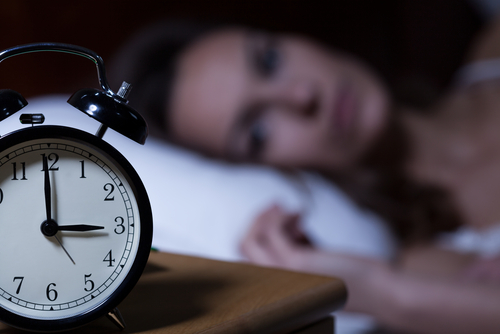6 scientific ways to fall asleep easier

Sleeping isn’t always the easiest thing to do. The Center of Disease Control estimates that 35% of Americans do not get enough sleep on a nightly basis, either through lifestyle habits, insomnia, or another sleep disorder. Even worse, a chronic lack of sleep raises a person’s risks for a myriad of health complications.
Falling asleep effectively might require a lifestyle change, but there are science-backed steps you can take to fall asleep quicker and easier. Even better – you won’t even have to take pills to do it.
Your mattress matters
It shouldn’t surprise you that your mattress and pillow selections can make a difference in falling asleep; no one wants to sleep on a lumpy pillow, after all. But this tip goes even further. Studies have shown that back sleepers are generally more susceptible to having a lower quality of sleep.
You want to find a mattress – and pillow – that allows you to sleep on your sides comfortably. You can also sleep with a pillow between your legs to reduce the chance of back pain.
Keep things cool
Your body temperature fluctuates during the day, dropping to its lowest point during sleep. At bedtime, it’s essential that you have a conducive environment for letting your body temperature drop.
To do this, you can actually take a warm bath or shower before bed. The warmth will increase your body temperature and force your body to cool itself afterward. It gets your body in the mode of dropping your temperature early and can allow for a quick, easy slip into sleep.
You can also open a window or simply lower the thermostat a bit. Fans can help out as well.
Disconnect from all things digital
It’s been proven that light from digital screens can interfere with your biological clock, messing up the hormones in your body that influence your ability to sleep.
There’s more to it, though. By interacting with your mobile device, tablet or laptop at bedtime, you’re stimulating your brain and encouraging it to focus and stay alert. It’s difficult to fall asleep if your brain’s resisting your body’s encouragement to sleep.
Psychologists also say that interacting with your phone or television in bed can make it more difficult to sleep simply because it changes how you perceive your bed. If your mind connects your bed to lounging and watching television, it makes it harder to sleep.
Black out your bedroom
Part of what makes you sleepy is a hormone called melatonin. Your body produces melatonin to regulate your sleepiness and wakefulness based on the amount light you’re exposed to.
Any light in your bedroom can create an issue with melatonin production. Electronics can give off light or lamp posts outside of windows. Take care to cover these lights or remove them entirely from your bedroom.
Develop a relaxing routine
Stress is one of the most common causes of insomnia. And if you’re already having trouble falling asleep, the added stress can make your struggle even worse.
Luckily, a regular bedtime routine can cut away stress and make falling asleep much easier. It’s another psychological trick – find a routine that relaxes you and your body will recognize the trend and begin its work to put you to sleep.
Some people use aromatherapy by lighting candles or a diffuser. White noise is an auditory stimulus people use for sleeping too. That warm shower or bath mentioned earlier? It can also become part of your relaxing habit to fall asleep.
Acupuncture and acupressure
The benefits of acupuncture are underrated. Studies show that acupuncture increases blood flow, reduces pain and stress, and can even increase your production of melatonin.
Acupressure is a way to do this by yourself as well. There are tons of pressure points that people use, but some of the most common ones for sleeping and relaxation are in the middle of your forearms just a few inches up from your wrists, behind your ears, and the heel of your foot.
Losing sleep is stressful and impacts a person’s daily life. But with a little scientific know how, you can influence your body’s ability to fall asleep and reduce your stress along the way.


